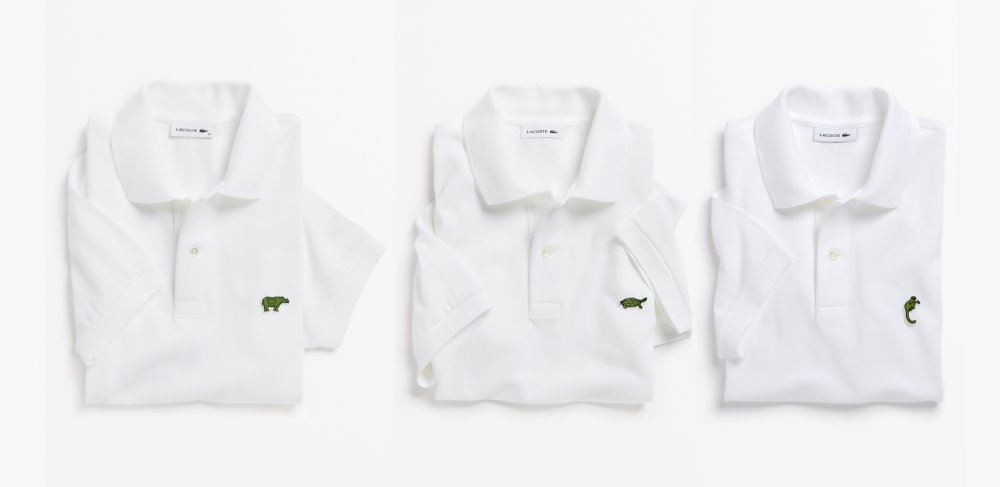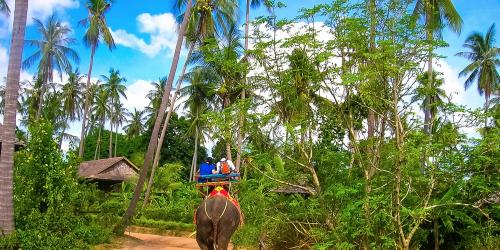In 2018, the International Union for the Conservation of Nature (IUCN) will celebrate its 70th anniversary. For the occasion, the NGO has partnered with Lacoste for a capsule collection of 10 polos, in limited edition .
Lacoste X Save Our Species
Indeed, the crocodile brand wanted to get involved by taking part in the Save Our Species program , which coordinates projects aimed at protecting endangered species, their habitats and the people who depend on them. For the occasion, Lacoste has designed a limited edition collection of 10 polos to support the 10 most endangered species in the world . On these white polo shirts, the iconic crocodile of the brand is replaced by the threatened animal.
10 limited edition polos for 10 endangered species
The number of polos produced corresponds to the number of each species still alive.
- The porpoise of the Gulf of California . Victim of fishing nets, this marine mammal now has only 30 specimens.
- The Batague turtle from Burma . Its eggs are threatened by the men who consume them. Only 40 specimens remain.
- Northern Lepilemur . This primate of the family of lemurs is threatened with extinction because of illegal hunting and degradation of its habitat. 50 specimens.
- The rhinoceros of the Sunda . Because of its low reproductive capacity and intensive poaching, there are only 67 specimens left.
- The gibon of Cao-Vit . It is the rarest monkey in the world: deforestation of its habitat threatens its survival. 150 specimens.
- The parrot Kakapo . The main cause of its low representation? The natural reproduction rate and the predators that are domestic cats. 157 specimens.
- The California condor . Garbage and human waste pollute its habitat. 231 specimens.
- The saola . It is one of the only large mammals critically endangered. 250 specimens.
- The Sumatran tiger. The main dangers that affect it? Poaching and deforestation that destroys its natural habitat. 350 specimens.
- The cyclone of the island of Anegada . Dogs and wildcats are fond of it, and agriculture, which reduces its territory, does not improve the cause of this iguana. 450 specimens.
In all, there are 1775 polos that are marketed from February 28 . The proceeds from the sale of this collection will help IUCN and Lacoste in their fight for nature conservation around the world.




